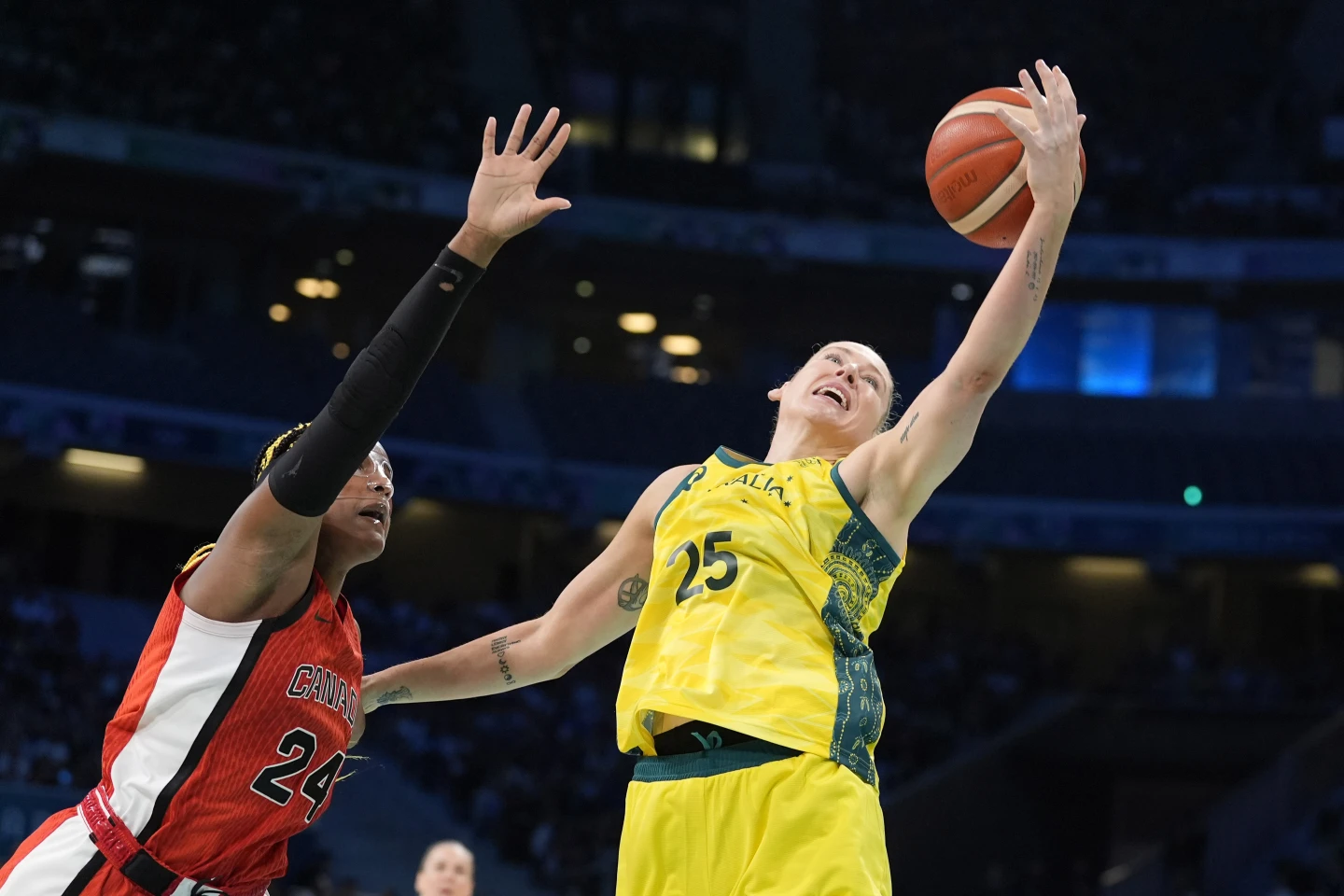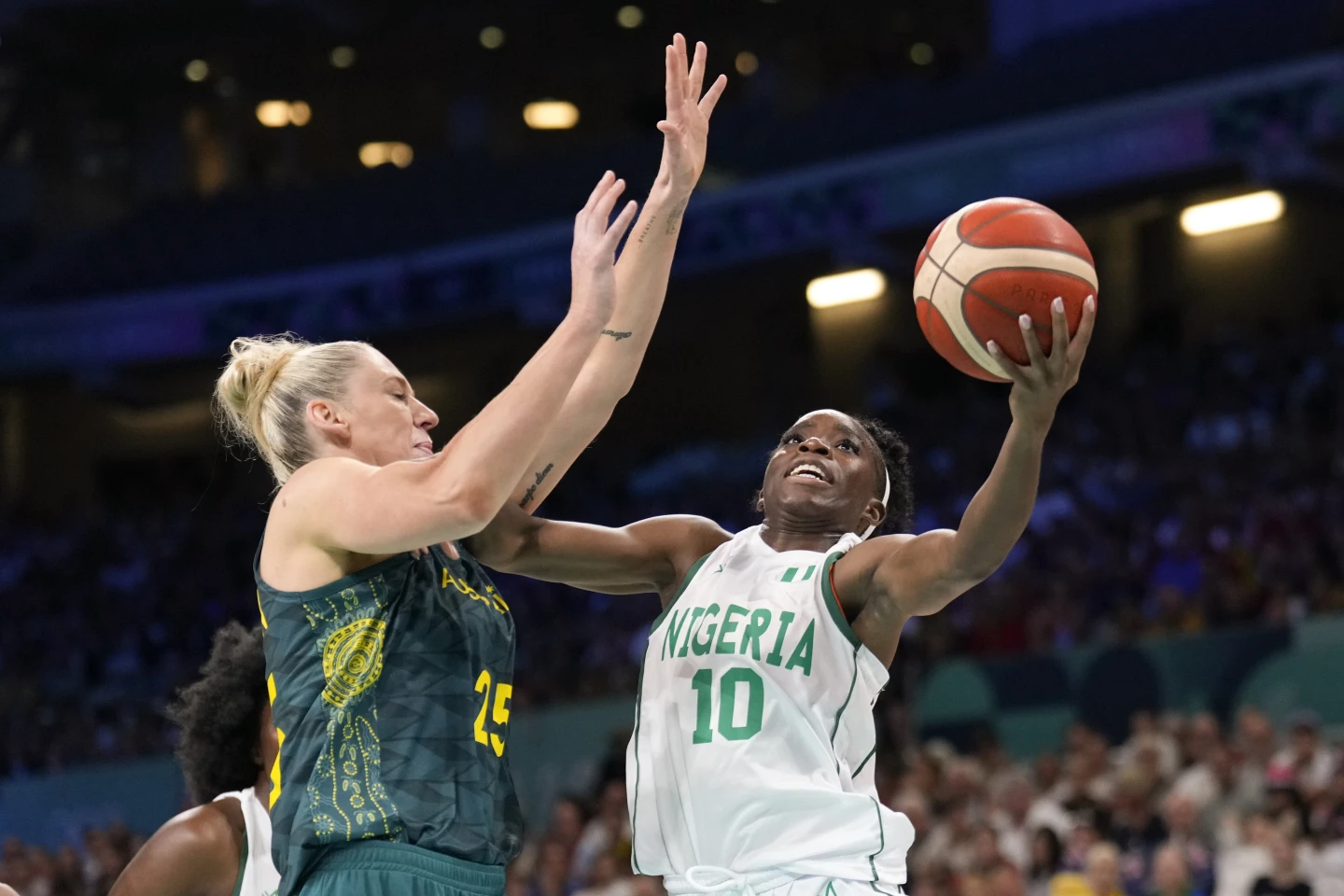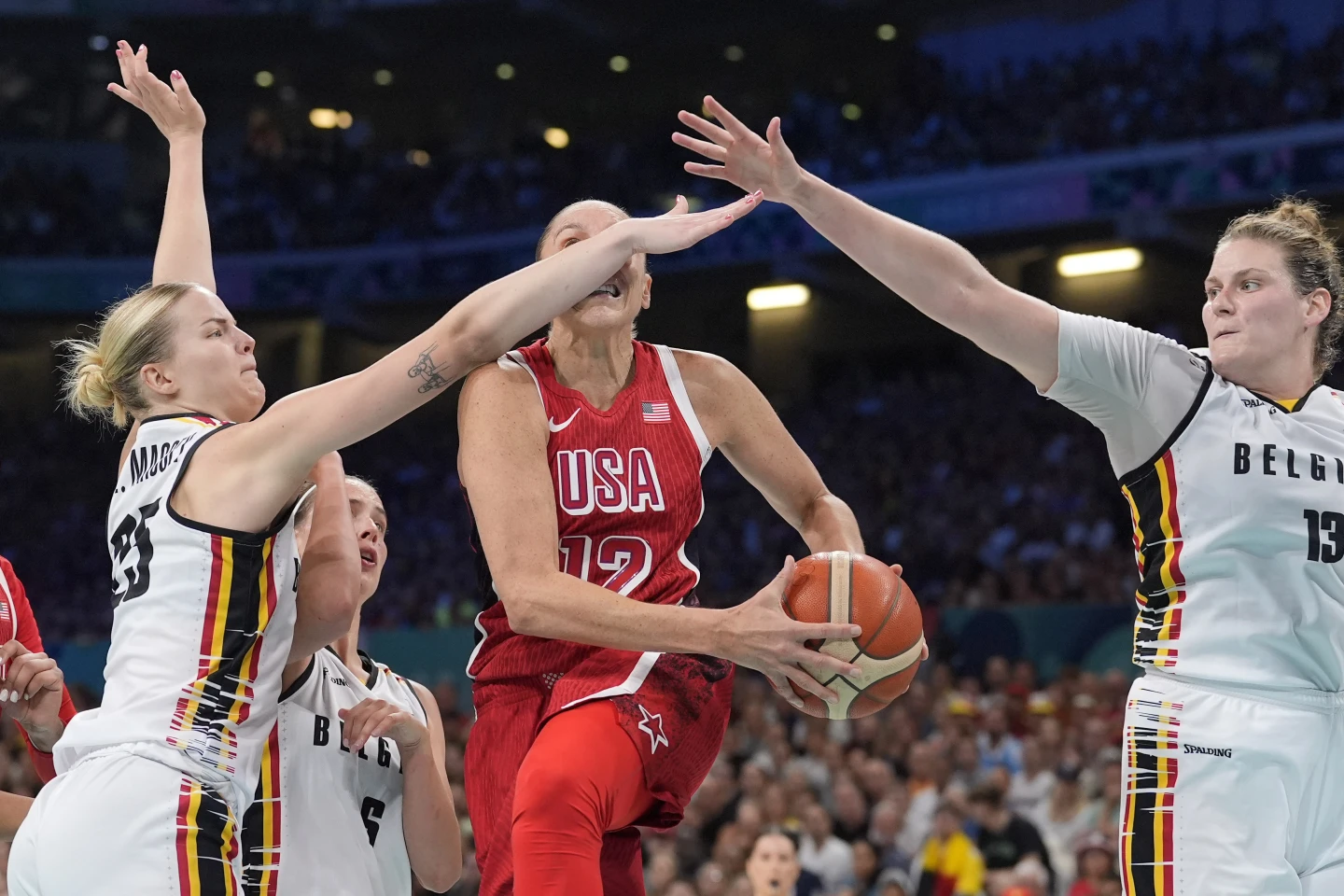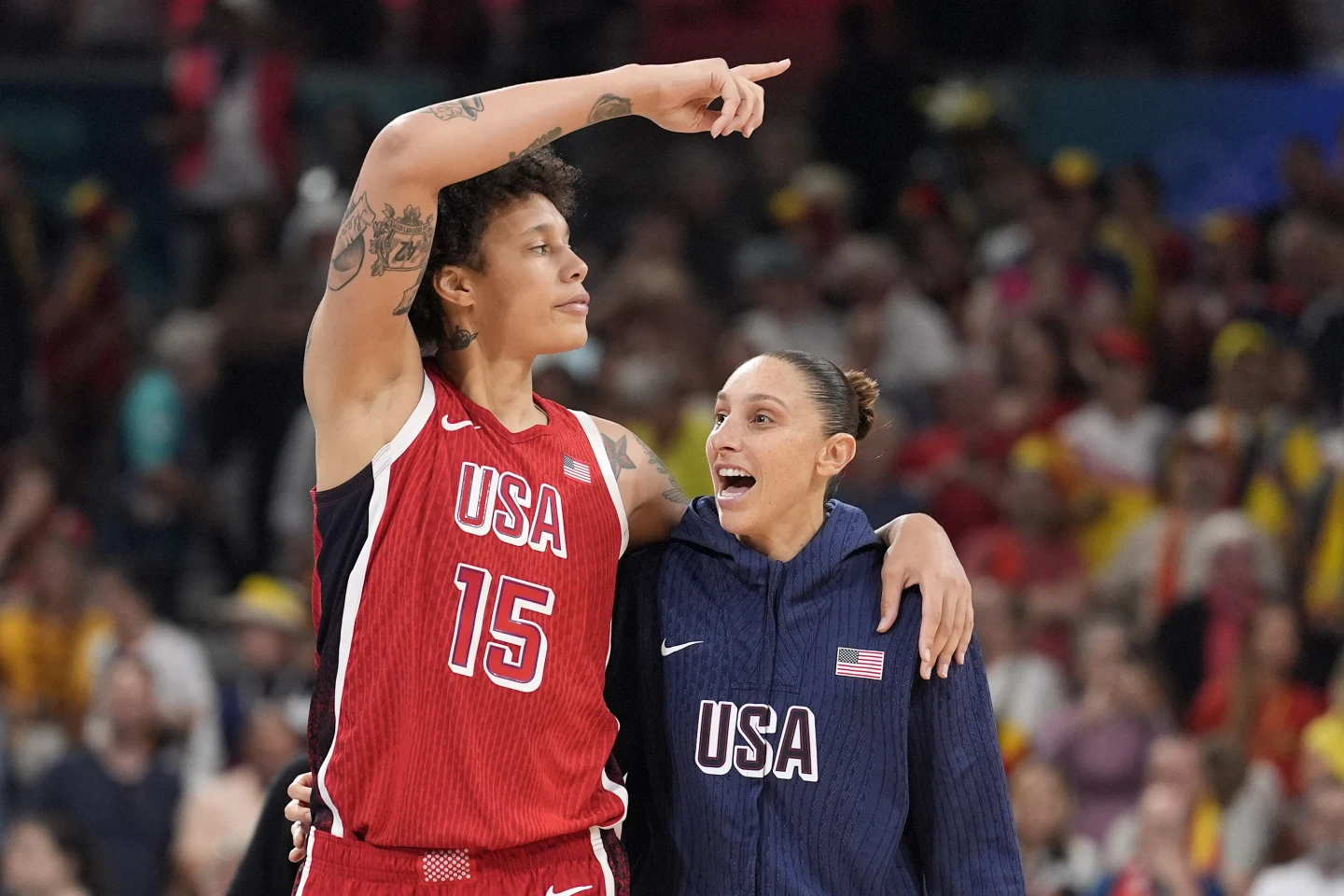Diana Taurasi wants people to stop mentioning her age, while Lauren Jackson just acknowledges it—she’s older.
Both players, who are over 40, are in the Olympic quarterfinals and could face each other in a game on Friday if their teams win on Wednesday.
Taurasi, at 42, is competing in her sixth consecutive Olympics. Jackson, at 43, is back after missing 12 years of Olympics.
“It’s crazy. You know, I never, ever anticipated that I’d be back here again,” said Jackson. “I couldn’t have imagined it three years ago. Two years ago, a year ago. Six months ago. Like, I just wasn’t going to be doing it. So to be here, it’s like it really does feel so different to what it used to feel like.”
Jackson retired in 2016 because of knee injuries and hoped to compete in the Olympics that year, but an ACL injury stopped that.

She returned to play in Australia and helped the Opals win a bronze medal at the 2022 World Cup held in their country. She scored 30 points in the bronze medal game.
The Australians would love to see another performance like that when they face Serbia in the Olympic quarterfinals on Wednesday.
Australia and the U.S. didn’t meet two years ago at the Worlds, but they might play against each other on Friday. This would be another matchup between Jackson and Taurasi, who have played against each other many times over the years in the Olympics, WNBA, and other international games.
“It’s a bit of a time warp. You know, I think being in this environment again, it is crazy. And like I said, I’ve just taken every day as it comes and it’s got me back here,” Jackson said.

“So long as I’m able to contribute, play defense, get some rebounds, you know, not let my team down in those minutes. I’m happy … and I feel like I’m doing my job.”
Unlike Jackson, Taurasi is a bit frustrated with the focus on her age as an Olympic basketball player. Some people outside USA Basketball think she should have been replaced by a younger player, like WNBA rookie Caitlin Clark.
“If there’s one thing you can’t escape in this country, it is ageism. I’ve gone back and forth with this answer. When you dedicate your whole life, your whole career to something, and you get the question of, ‘Why don’t you just retire?’” Taurasi said before the Olympics began.
“It’s something I’ve been doing since I was 5. It’s something I’ve dedicated my whole life to. And it’s just so easy … for a question to be brought up in a manner where it’s not meant to be disrespectful. But if you’re the person being asked, it is a bit disrespectful.”
No woman has ever played in six Olympics or been as successful as Taurasi. She believes there is a gender bias, with age being more of an issue for women.

“I tell people that all the time, especially in women’s sports, in women’s professions. Only a woman would have 20 years of experience and it’d be an Achilles’ heel, instead of something that is treasured and used as a way forward, for sport and for women.”
Even though Jackson and Taurasi haven’t had standout performances on the court during the Paris Games, their experience has been very valuable to their teammates.
“She’s like another coach. She’s had so many years of experience and the way she sees the game is really special,” U.S. forward Napheesa Collier said.
“She’s really smart in the way that she can break things down and sees what’s open and how to dissect the game. It’s really, really such an honor to be able to play with her.”
